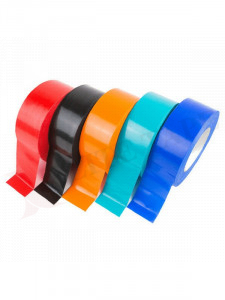Understanding Butyl Foil Tape Versatility and Applications
Butyl foil tape is a powerful adhesive solution that has gained popularity across various industries due to its unique properties and versatility. Composed primarily of butyl rubber and an aluminum foil backing, this tape blends the flexibility of butyl with the durability of metal, making it an ideal choice for a wide range of applications.
Composition and Properties
The primary component of butyl foil tape is butyl rubber, which is known for its excellent sealing properties and resistance to aging, UV light, and extreme temperatures. The aluminum foil backing adds an extra layer of protection, providing heat resistance and additional durability, while also enhancing the tape’s barrier against moisture and air penetration. This combination makes butyl foil tape an outstanding choice for both indoor and outdoor use.
One of the standout characteristics of butyl foil tape is its aggressive adhesive quality. Once applied, the tape forms a strong bond that can withstand various environmental conditions. It remains flexible, allowing it to expand and contract with temperature changes without losing its adhesion qualities. This elasticity is particularly important in applications where building materials may shift over time.
Key Applications
1. Construction and Building One of the most common uses of butyl foil tape is in the construction industry. It is often used for sealing roofs, windows, and doors. The tape's waterproof properties make it perfect for flashing applications, preventing water leaks and enhancing energy efficiency by improving insulation.
2. HVAC Systems Because of its ability to create airtight seals, butyl foil tape is commonly used in heating, ventilation, and air conditioning systems. It secures ducts, helping to reduce energy loss and improve system efficiency.
butyl foil tape

3. Automotive Industry In automotive manufacturing and repair, butyl foil tape is utilized for waterproofing and sealing areas where parts come together. Its ability to resist harsh chemicals and extreme weather conditions ensures that sealed areas remain intact over time.
4. Electronics In electronics, butyl foil tape acts as a barrier against moisture and dust. It is often used in sealing connectors and other sensitive components, helping to extend the life of electronic devices.
5. Solar Panel Installation As the renewable energy sector grows, butyl foil tape has emerged as an essential material in solar panel setups. Its weather-resistant qualities help ensure that installations remain secure and functional, even in adverse weather conditions.
Advantages and Considerations
Using butyl foil tape offers numerous advantages. Its excellent adhesive properties, versatility, and ability to withstand harsh conditions make it a go-to option for professionals in various fields. Additionally, its easy application process allows for quick installation without the need for special tools or extensive preparation.
However, it is essential to ensure proper surface preparation before application. The surfaces should be clean and dry to achieve optimal adhesion. Furthermore, while butyl foil tape is highly durable, it is important to choose the right type of tape for specific applications, as some formulations may be better suited for particular environments.
Conclusion
Butyl foil tape is an extraordinary adhesive solution that combines flexibility, durability, and exceptional sealing capabilities. Its range of applications in construction, automotive, electronics, and renewable energy showcases its essential role in modern industries. As technology advances and industries continue to evolve, the demand for such versatile materials will undoubtedly remain high. Whether sealing roofs or protecting electronic components, butyl foil tape is proving to be an invaluable tool in ensuring the integrity and performance of various systems.
-
XIANGFAN Rubber Tape-Ultimate Solutions for All Your Insulation NeedsNewsJun.24,2025
-
XIANGFAN Rubber Tape-Protection for Industrial and Residential ApplicationsNewsJun.24,2025
-
XIANGFAN Rubber Tape: Superior Safety and Sealing for Demanding EnvironmentsNewsJun.24,2025
-
XIANGFAN Rubber Tape: Reliable Solutions for Every Electrical ChallengeNewsJun.24,2025
-
XIANGFAN Electrical & Industrial Tape: Powering Reliability Across IndustriesNewsJun.24,2025
-
XIANGFAN Electrical & Industrial Tape: Excellence in Every ApplicationNewsJun.24,2025
